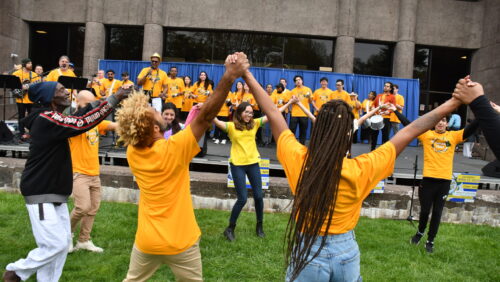Experiential Certificates complement the core liberal arts experience with an integrated set of courses and immersive experiences that prepare students for their next steps after Trinity.
Students may fulfill their Trinity “Plus” by completing an Experiential Certificate. This integrated set of experiences are uniquely designed to provide students with robust, practical, learning opportunities. Each Certificate consists of a total of three credits, combining both academic and co-curricular credit bearing experiences, with at least one credit from both experience categories.
Co-curricular experiences include, but are not limited to: TA-ships; peer teaching and mentorships; internships (that do not count toward a major); short-term global study; some unpaid research with a faculty member, paid summer research; and (most) J-term courses.
Please visit the Trinity College Bulletin for a complete listing with requirements for all of the experiential certificates.

